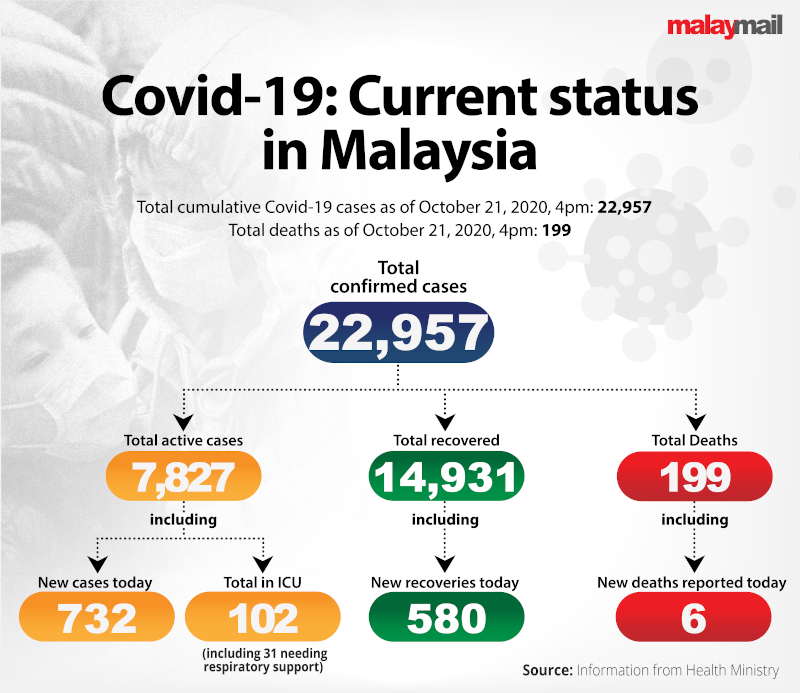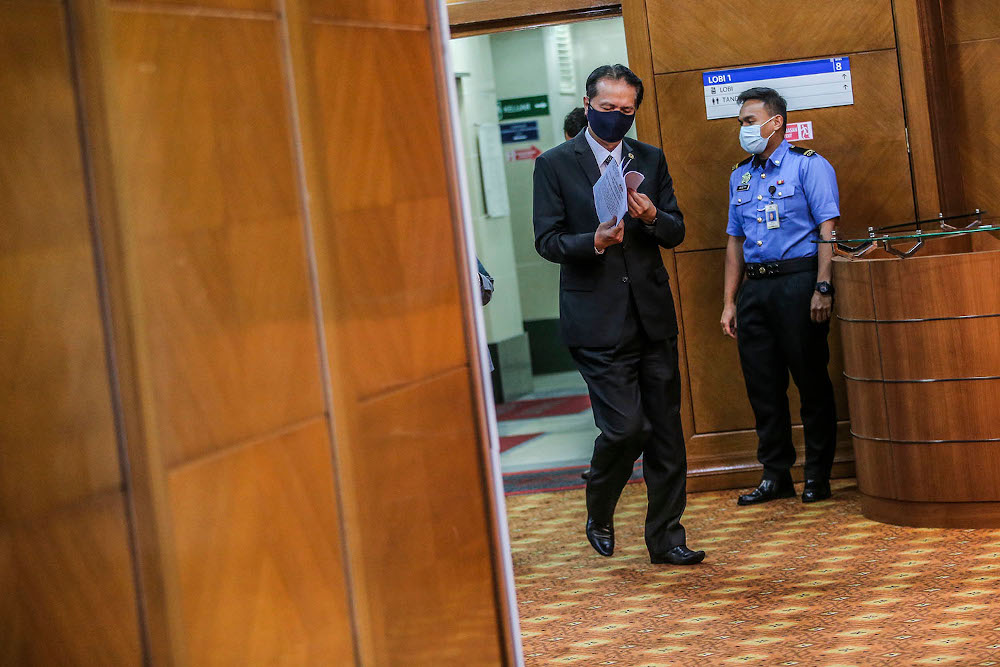KUALA LUMPUR, Oct 21 — Have you ever wondered how the Health Ministry decide the Covid-19 risk levels of an area to be a red zone, yellow zone or green zone?
Health director-general Dr Noor Hisham Abdullah explained that the classifications are based on the number of cases in a specific area or district, after the matter was raised in his Covid-19 briefing today.
He said areas are classified as “red zones” when 41 or more Covid-19 cases are registered there for a 14-day period.
“It’s actually a moving target because of the cycle. We look into the zones based on the number of cases as well as the 14-day period,” Dr Noor Hisham said in the press conference that was aired on Facebook.
“Yellow zones” are areas where one to 40 Covid-19 cases are registered, and “green zones” are areas where there are no reported cases of Covid-19 present.
Dr Noor Hisham added that since the implementation of the conditional movement control order (CMCO) and appropriate zoning of districts with high number of cases, the Health Ministry has seen an improvement with regards to the R-naught number.
“Since we implemented the CMCO, we have seen positive results with regards to the R-naught. When we started, the R-naught was at 2.2. Today, when we look at the whole country, the R-naught has actually reduced to 1.2.
“But in the case of Sabah and Selangor themselves, it is at 1.3 and 1.4 respectively. Kedah is doing very well at 0.7, including those from the prison clusters.
Dr Noor Hisham added that the steps taken in Kedah to reduce the R-naught number will be implemented in Sabah with the hopes that it will bring down the number of cases there.
The R-naught, or R0, refers to the infectivity rate of a communicable diseases. It represents, on average, the number of people that a single infected person can be expected to transmit that disease to.




















